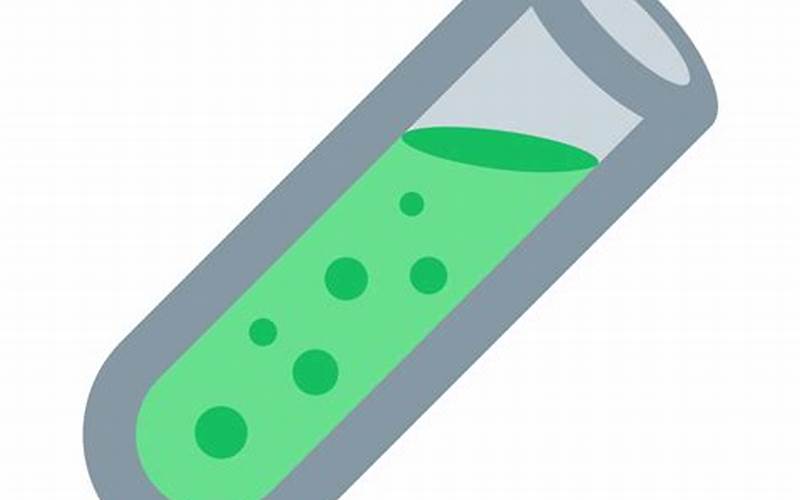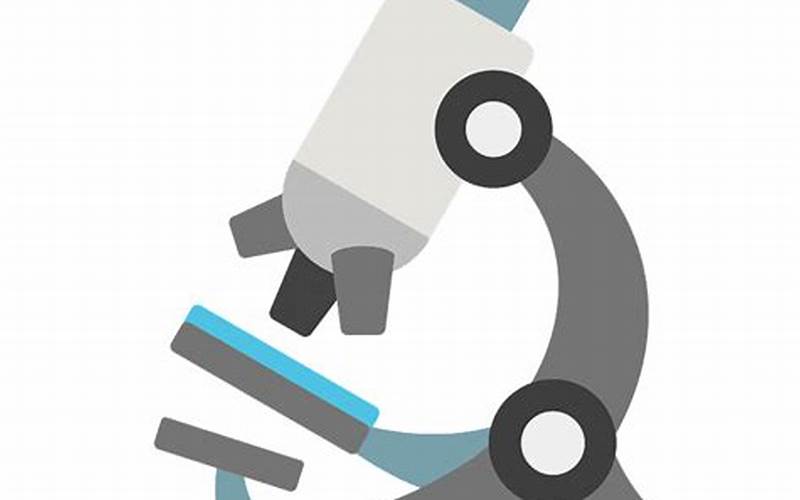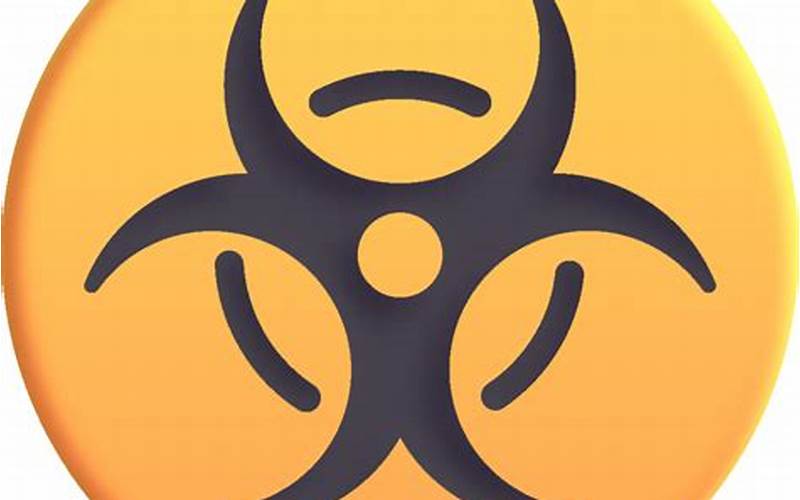Greetings, dear readers! Today, we would like to talk about a rare and deadly cancer that affects the lining of the heart – primary pericardial mesothelioma. This type of cancer is incredibly rare, with only a few hundred cases reported in medical literature. However, it is also incredibly deadly, with a prognosis of just a few months to a year after diagnosis.
What is Primary Pericardial Mesothelioma?
Primary pericardial mesothelioma is a type of cancer that affects the pericardium, which is the sac that surrounds the heart. This sac protects and lubricates the heart, and is composed of two layers – the visceral pericardium and the parietal pericardium. Primary pericardial mesothelioma is a cancer that arises from the mesothelial cells that line the pericardium, and can spread to nearby tissues and organs.
 Source: bing.com
Source: bing.com As you can imagine, primary pericardial mesothelioma is an incredibly serious and life-threatening disease. Because of the close proximity of the cancer to the heart, it can be incredibly difficult to treat, and the prognosis is often poor.
What Causes Primary Pericardial Mesothelioma?
 Source: bing.com
Source: bing.com Like other types of mesothelioma, primary pericardial mesothelioma is often caused by exposure to asbestos. Asbestos is a naturally occurring mineral that was widely used in construction and industry throughout the 20th century. When asbestos fibers are inhaled, they can become lodged in the mesothelial cells that line the organs, including the pericardium. Over time, these fibers can cause damage and inflammation, which can lead to the development of cancer.
What Are the Symptoms of Primary Pericardial Mesothelioma?
 Source: bing.com
Source: bing.com Unfortunately, the symptoms of primary pericardial mesothelioma are often very vague and nonspecific. They can include chest pain, shortness of breath, coughing, fatigue, and weight loss. Because these symptoms can be caused by many other conditions, primary pericardial mesothelioma is often misdiagnosed or overlooked.
How is Primary Pericardial Mesothelioma Diagnosed?
 Source: bing.com
Source: bing.com Primary pericardial mesothelioma is typically diagnosed through a combination of imaging tests and biopsies. These can include chest X-rays, CT scans, MRI scans, and PET scans. If cancer is suspected, a biopsy may be performed to confirm the diagnosis.
What Are the Treatment Options for Primary Pericardial Mesothelioma?
 Source: bing.com
Source: bing.com The treatment options for primary pericardial mesothelioma are very limited, and the prognosis is often poor. Surgery may be an option for some patients, but it is often difficult to remove all of the cancerous tissue without damaging the heart. Chemotherapy and radiation therapy may also be used to treat the cancer, but these treatments often provide only temporary relief.
What is the Prognosis for Primary Pericardial Mesothelioma?
 Source: bing.com
Source: bing.com Unfortunately, the prognosis for primary pericardial mesothelioma is often very poor. Most patients with this type of cancer survive for only a few months to a year after diagnosis. However, every case is different, and some patients may respond better to treatment than others.
Complete Information About Primary Pericardial Mesothelioma
| What is Primary Pericardial Mesothelioma? |
Primary pericardial mesothelioma is a type of cancer that affects the lining of the heart. |
| What Causes Primary Pericardial Mesothelioma? |
Primary pericardial mesothelioma is often caused by exposure to asbestos. |
| What Are the Symptoms of Primary Pericardial Mesothelioma? |
The symptoms of primary pericardial mesothelioma are often vague and nonspecific, and can include chest pain, shortness of breath, coughing, fatigue, and weight loss. |
| How is Primary Pericardial Mesothelioma Diagnosed? |
Primary pericardial mesothelioma is typically diagnosed through a combination of imaging tests and biopsies. |
| What Are the Treatment Options for Primary Pericardial Mesothelioma? |
Treatment options for primary pericardial mesothelioma are limited, and may include surgery, chemotherapy, or radiation therapy. |
| What is the Prognosis for Primary Pericardial Mesothelioma? |
The prognosis for primary pericardial mesothelioma is often poor, with a survival time of only a few months to a year. |
Frequently Asked Questions
What Are the Different Types of Mesothelioma?
 Source: bing.com
Source: bing.com There are several different types of mesothelioma, including pleural mesothelioma (which affects the lining of the lungs), peritoneal mesothelioma (which affects the lining of the abdomen), and pericardial mesothelioma (which affects the lining of the heart).
What is the Most Common Cause of Mesothelioma?
 Source: bing.com
Source: bing.com The most common cause of mesothelioma is exposure to asbestos, which was widely used in construction and industry throughout the 20th century.
What Are the Symptoms of Mesothelioma?
 Source: bing.com
Source: bing.com The symptoms of mesothelioma can vary depending on the type and stage of the cancer, but often include chest pain, shortness of breath, coughing, fatigue, and weight loss.
Can Mesothelioma be Treated?
 Source: bing.com
Source: bing.com Yes, mesothelioma can be treated with a combination of surgery, chemotherapy, and radiation therapy. However, the prognosis is often poor, especially for later-stage cancers.
Is Mesothelioma Contagious?
 Source: bing.com
Source: bing.com No, mesothelioma is not contagious. It is caused by exposure to asbestos, not by a virus or bacteria.
Can Mesothelioma be Prevented?
 Source: bing.com
Source: bing.com Yes, mesothelioma can be prevented by avoiding exposure to asbestos. This may involve wearing protective gear, using proper ventilation, and avoiding work environments where asbestos is present.
Is Mesothelioma a Disability?
 Source: bing.com
Source: bing.com Yes, mesothelioma can be considered a disability if it affects a person’s ability to work or perform daily activities.
Can Mesothelioma Spread to Other Parts of the Body?
 Source: bing.com
Source: bing.com Yes, mesothelioma can spread to other parts of the body, such as the lungs, liver, and bones.
How Long Does It Take for Mesothelioma to Develop?
 Source: bing.com
Source: bing.com Mesothelioma can take anywhere from 20 to 50 years to develop after exposure to asbestos.
How is Mesothelioma Different from Lung Cancer?
 Source: bing.com
Source: bing.com Mesothelioma and lung cancer are two different types of cancer, with different causes and treatments. Mesothelioma affects the lining of the organs, while lung cancer affects the cells in the lungs.
Is Mesothelioma Common?
 Source: bing.com
Source: bing.com Mesothelioma is a relatively rare cancer, with only a few thousand cases reported in the United States each year.
Can Mesothelioma be Inherited?
 Source: bing.com
Source: bing.com No, mesothelioma is not an inherited disease. It is caused by exposure to asbestos.
What Are the Risk Factors for Mesothelioma?
 Source: bing.com
Source: bing.com The main risk factor for mesothelioma is exposure to asbestos. Other risk factors may include smoking and certain genetic mutations.
Is Mesothelioma Curable?
 Source: bing.com
Source: bing.com While mesothelioma is not currently curable, there are treatments available that can help to slow the progression of the cancer and improve quality of life.
What Can I Do to Support Mesothelioma Patients?
 Source: bing.com
Source: bing.com There are many ways that you can support mesothelioma patients, such as making a donation to a mesothelioma research organization, volunteering your time to help raise awareness about the disease, or simply offering emotional support to those affected by the disease.
Conclusion
 Source: bing.com
Source: bing.com In conclusion, primary pericardial mesothelioma is a rare and deadly cancer that affects the lining of the heart. Although it is often caused by exposure to asbestos, there are limited treatment options available, and the prognosis is often poor. However, with increased awareness and research, we can work to improve outcomes for mesothelioma patients.
 Source: bing.com
Source: bing.com If you or a loved one has been diagnosed with mesothelioma, we urge you to seek out all available resources and treatment options. Together, we can work towards a future where mesothelioma is no longer a life-threatening disease.
Closing/Disclaimer
 Source: bing.com
Source: bing.com Please note that the information provided in this article is for educational purposes only, and should not be used as a substitute for professional medical advice, diagnosis, or treatment. Always seek the advice of your physician or other qualified healthcare provider with any questions you may have regarding a medical condition.
Read Also- Pericardial Mesothelioma Cited Article 🚨 A Rare and Dangerous Form of Mesothelioma 🚨Greetings readers! If you are reading this article, you may be familiar with mesothelioma, a rare and deadly cancer. However, have you…
- Mesothelioma Next to Heart? What You Need to Know Greetings, dear readers. We understand that you have clicked on this article because you may have concerns about mesothelioma next to the heart. You have come to the right place.…
- Pericardial Mesothelioma Demographics: Exploring the Facts… The Shocking Truth About Pericardial MesotheliomaPericardial mesothelioma is a rare type of cancer that affects the lining of the heart. This aggressive form of cancer accounts for only 1% of…
- Pericardial Mesothelioma CT: A Comprehensive Guide 🔍 Understanding Pericardial Mesothelioma CTGreetings, dear readers! Today, we will delve into the complexities of pericardial mesothelioma CT. Pericardial mesothelioma is a rare form of cancer that develops in the…
- Pericardial Mesothelioma in Cats: Causes, Symptoms, and… The Silent Killer Among Feline Cancer: Pericardial MesotheliomaAre you a cat owner? Then, you should be aware of the dangers of pericardial mesothelioma, a rare but life-threatening cancer that can…
- Pericardial Mesothelioma and Asbestos Exposure: A Deadly… Asbestos exposure has been linked to a variety of deadly diseases, including mesothelioma, a rare but aggressive form of cancer that affects the lining of the lungs, abdomen, and heart.…
- Pericardial Mesothelioma Wiki: Symptoms, Causes, and… A Rare and Dangerous Form of CancerGreetings, dear readers! If you're here, chances are you're looking to learn more about pericardial mesothelioma. This rare and lethal form of cancer affects…
- The Story of Pericardial Mesothelioma Survivors: Triumph… Pericardial mesothelioma, a rare form of cancer affecting the lining of the heart, is a devastating diagnosis. With only a few hundred cases diagnosed worldwide each year, this condition often…
- Pericardial Mesothelioma Histology: Understanding the Cancer 🔎 Unveiling the Secrets of Pericardial Mesothelioma Histology 🔎Greetings, fellow enthusiasts of medical sciences!Are you familiar with pericardial mesothelioma histology? In layman's terms, this is a rare form of cancer…
- Pericardial Mesothelioma Survival Rates: What You Need to… Introduction Hello, readers. Thank you for taking the time to read this article on pericardial mesothelioma survival rates. In this piece, we aim to provide you with comprehensive information on…
- Pericardial Mesothelioma Causes: Understanding the Risk… Greetings to all our readers who are interested in knowing more about pericardial mesothelioma causes. Mesothelioma is a rare and aggressive form of cancer that affects the lining of organs…
- What Causes Pericardial Mesothelioma? 🔍 Understanding Pericardial MesotheliomaWelcome to our comprehensive guide on the causes of pericardial mesothelioma. This type of cancer affects the pericardium, which is the protective membrane surrounding the heart. It…
- Surgery for Pericardial Mesothelioma: Understanding… Pericardial mesothelioma is a rare form of cancer that affects the lining of the heart. Though relatively uncommon, difficulty in diagnosis and a high mortality rate make it a significant…
- Mesothelioma Pericardial Effusion: Symptoms, Causes, and… IntroductionGreetings dear readers! Mesothelioma pericardial effusion is a rare form of cancer that affects the lining of the heart. This condition is caused by exposure to asbestos, which increases the…
- Mesothelioma of Pericardium: Symptoms, Diagnosis, and… The Silent Killer: Mesothelioma of PericardiumMesothelioma of pericardium is a rare form of cancer that affects the lining surrounding the heart. This condition is caused by exposure to asbestos fibers,…
- When Mesothelioma Spreads to the Heart: Understanding the… Greetings, dear readers. Cancer is an incredibly challenging disease that affects millions of people worldwide. Mesothelioma, in particular, is a rare type of cancer that typically affects the lungs and…
- The Deadly Disease: Burke Pericardial Mesothelioma Armed… IntroductionWelcome to our informative article about Burke Pericardial Mesothelioma Armed Forces Institute Pathology. This disease is a deadly and aggressive form of cancer that affects the pericardium, which is the…
- Burke Virmani Malignant Mesothelioma of the Pericardium… IntroductionWelcome to our article on Burke Virmani Malignant Mesothelioma of the Pericardium 1996. This rare disease is a subtype of mesothelioma that affects the pericardium, which is the membrane that…
- Mesothelioma Pericardial Window: A Breakthrough Treatment Mesothelioma Pericardial Window: A Breakthrough TreatmentGreetings, dear readers! We are pleased to bring you the latest information on mesothelioma pericardial window, a groundbreaking treatment for mesothelioma that has been gaining…
- Pericardial effusion mesothelioma: Symptoms, Causes, and… IntroductionHello readers, and welcome to our article discussing pericardial effusion mesothelioma. This type of cancer is rare, but its effects can be devastating. We hope to provide you with a…
- Attorney Mesothelioma Pericardial: Protecting Your Legal… Get the Compensation Your Deserve for Mesothelioma Pericardial Mesothelioma is a rare and aggressive form of cancer that affects the lining of the organs, including the heart. When the cancer…
- Mesothelioma Anatomy: Understanding the Disease Are you or a loved one suffering from mesothelioma? This rare and devastating form of cancer affects the lining of your organs, usually in the lungs or abdomen. Understanding mesothelioma…
- Pericardiocentesis Pericardial Mesothelioma: A Comprehensive… A Deadly Combination: Understanding Pericardiocentesis Pericardial MesotheliomaWelcome to our comprehensive guide on pericardiocentesis pericardial mesothelioma. This deadly condition affects the lining of the heart and can lead to severe complications.…
- Signs and Symptoms of Pericardial Mesothelioma: The Silent… IntroductionWelcome to this comprehensive article about pericardial mesothelioma. The deadly cancer is caused by prolonged exposure to asbestos, and it is one of the rare types of mesothelioma that affects…
- Pericardial Mesothelioma Diagnosis: A Comprehensive Guide 🔎 Understanding Pericardial Mesothelioma DiagnosisWelcome, dear reader, to this article that seeks to provide a detailed explanation of pericardial mesothelioma diagnosis. In this article, we will explore everything you need…
- Pericardial Mesothelioma Causes: Uncovering the Hidden Truth IntroductionGreetings to our esteemed readers! In this article, we will be discussing the causes of pericardial mesothelioma, a rare type of cancer that affects the lining of the heart. Many…
- Malignant Pericardial Mesothelioma: Symptoms, Causes,… IntroductionGreetings, readers! In today's article, we will be discussing malignant pericardial mesothelioma, a rare and aggressive form of cancer affecting the heart's protective lining. This type of cancer is often…
- what os mesothelioma cancer where does it start Title: Understanding Mesothelioma Cancer: Where it Begins and How to Spot It 👨⚕️🔬💊Opening:Hello, dear reader. In today's article, we'll be delving into the topic of mesothelioma cancer - a rare…
- Mesothelioma Pericardial: Causes, Symptoms, and Treatment IntroductionGreetings to our esteemed audience! Are you or your loved one suffering from mesothelioma pericardial? Do you want to learn more about this rare and aggressive cancer? If yes, then…
- The Importance of Radiation in Treating Pericardial… 🔍 Uncovering Mesothelioma and Its Relationship with Pericardial Mesothelioma RadiationPericardial mesothelioma is a rare type of cancer that develops in the lining surrounding the heart, known as the pericardium. This…